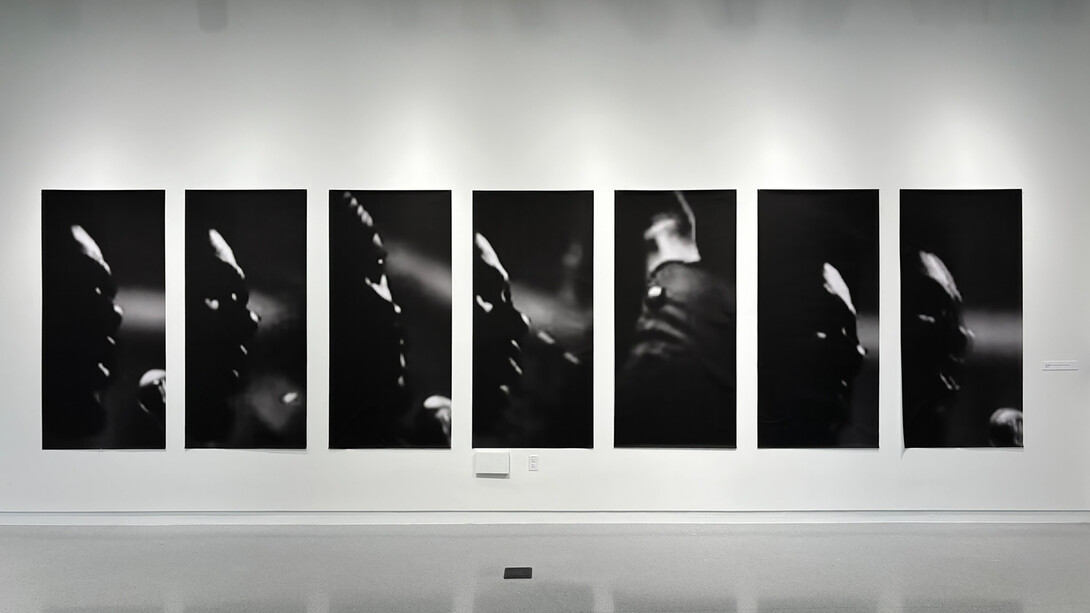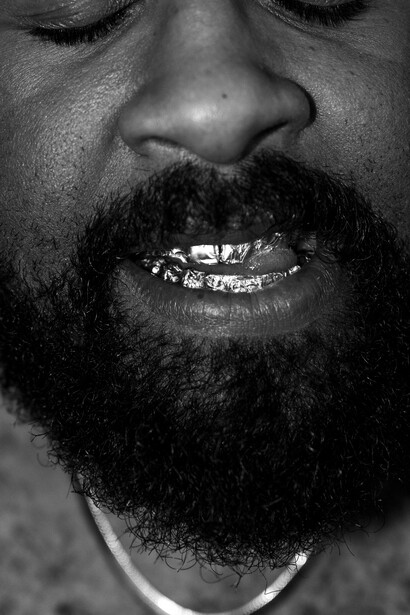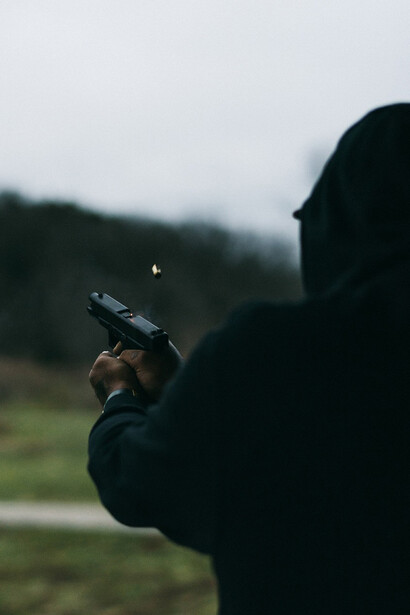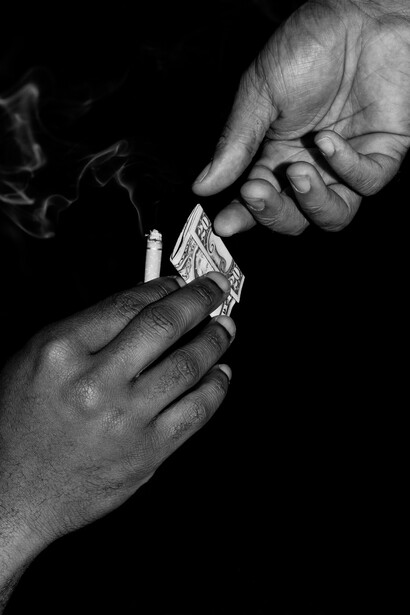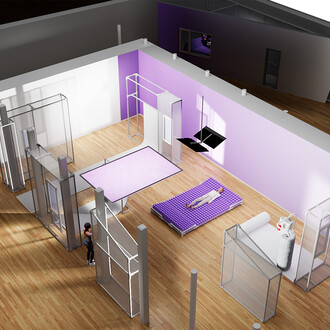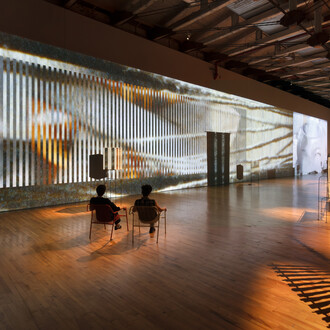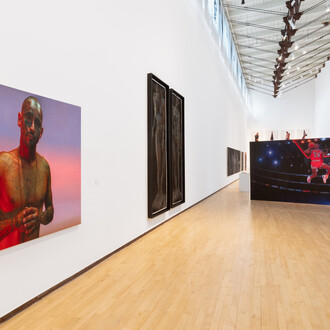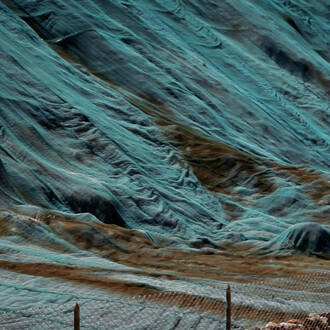MASS MoCA is pleased to present Zora J Murff: Race/hustle, curated by Terence Washington and the next exhibition to premiere as part of MASS MoCA’s Curatorial Exchange Initiative. Race/hustle aims to demonstrate, through photographs, collages, and, for the first time, installation works, that the pursuit of liberation is, in part, a struggle against a desire for what merely mimics it.
Murff makes photographs, assemblages, videos, and text works that examine physical, psychic, and political violence, the rhythms and resonances of oppression throughout history and into the present, and the harmful desires that our visual culture cultivates. Murff is particularly attentive to the structures of state violence. His project for MASS MoCA invites viewers to examine how systems of domination interlock and how their injurious effects are normalized and made invisible in everyday life.
“Zora specializes in photo-based works that confront viewers with sometimes difficult truths about Black life in the United States,” says CEI fellow and guest curator Terence Washington. “Increasingly, he assembles found imagery and text in knotty, associative collages, and Race/hustle will feature these hallmarks as well as sculpture and the artist’s’s first foray into participatory art. The confrontation remains.”
The perfect slave (after Jared Sexton) (2022) is a glitchy collage of President Barack Obama’s official headshot that makes him look like a masked bandit. In Gas money (Affirmation #1) (2019), Andrew Jackson peeks out from a folded $20 bill being passed from one Black hand to another. One of two participatory works, Master’s tools/Master’s house (Exclusion and extraction) (2025), bluntly signifies how the art museum itself is part of the cultural arm of white supremacy and state power. Race/hustle reminds us that race, capital, and imperialism shape much of our relationships to one another and ourselves. At the same time, they are not absolutely powerful. What does it take to resist? What does it take to desire to resist?
“Zora is not interested in embracing the flag to secure the bag,” continues Washington. “Race/hustle brings together photographs, sculpture, participatory work, and didactic installation to argue that Black people have been given a limited — and limiting — set of proposals for finally getting free. At the same time, we ask a question that implicates us all: if you knew you had the tools and the information to get free, would you really want to do it?”.
